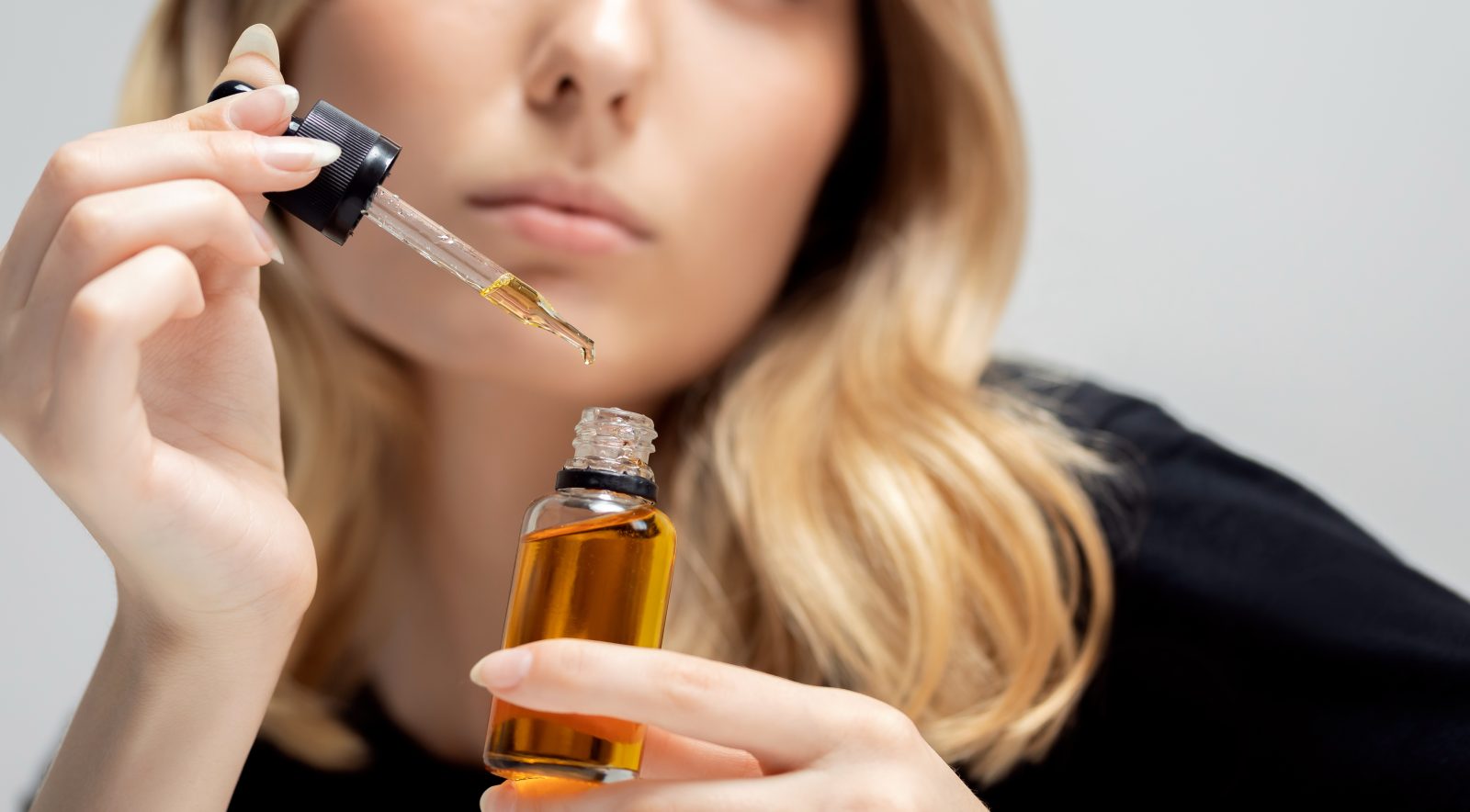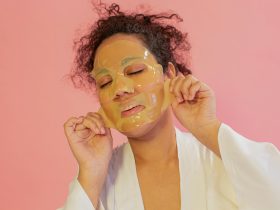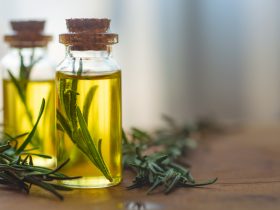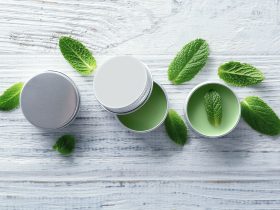Castor oil has been a staple in skincare and hair care routines for centuries, with its popularity experiencing a recent resurgence, garnering over a billion views on platforms like TikTok. This renewed interest can be attributed to the growing preference for natural skincare products and ingredients.
However, it’s important to note that the term “natural” lacks a standardized definition by the FDA and doesn’t necessarily guarantee safety or effectiveness. With that said, castor oil does offer potential beauty benefits for the skin, hair, and eyelashes.
For the skin, castor oil is believed to have moisturizing properties and may help improve hydration levels. It’s often used in facial oils and serums to nourish and soften the skin. Additionally, some people use castor oil as a spot treatment for acne due to its purported antibacterial properties.
In hair care, castor oil is valued for its ability to condition and strengthen hair. It’s commonly used as a hair mask or added to shampoos and conditioners to promote hair growth and reduce breakage. Castor oil is also popular as a natural remedy for enhancing eyelash thickness and length.
To incorporate castor oil into your beauty routine, you can apply it directly to the skin, hair, or eyelashes, or look for skincare and hair care products that contain castor oil as an ingredient. However, as with any skincare or hair care product, it’s essential to perform a patch test to check for any allergic reactions or sensitivity before widespread use.
Overall, while castor oil may offer several potential benefits for skin, hair, and eyelashes, it’s crucial to approach its use with caution and consult with a dermatologist if you have any concerns or specific skin conditions.
What Is Castor Oil?
Castor oil is a dense vegetable oil extracted from the seeds of the tropical castor plant, scientifically known as Ricinus communis. It contains various moisturizing fatty acids, such as ricinoleic, linoleic, and stearic acid, which are believed to provide hydration and address certain skin conditions when applied topically. You can find plain castor oil in health food and drugstores, or it may be included in personal care products like lotions and lipsticks.
One of the main attractions of castor oil is its simplicity, as it typically consists of just one ingredient. This appeals to consumers who prefer “clean” skincare products with minimal additives.
Despite its long history of use spanning thousands of years, our understanding of castor oil’s benefits is somewhat limited. While there is some scientific evidence supporting its skincare properties, further research is needed to fully elucidate its potential benefits and mechanisms of action.
Castor Oil Benefits for Hair and Skin
Castor oil contains various moisturizing fatty acids, including ricinoleic, linoleic, and stearic acid, which are believed to provide hydration and address certain skin conditions when applied topically. You can typically find plain castor oil in health food and drugstores, or it may be included in personal care products like lotions and lipsticks.
One of the main appeals of castor oil is its simplicity, as it usually consists of just one ingredient. This is attractive to consumers who prefer “clean” skincare products with minimal additives.
Despite being used for thousands of years, our understanding of castor oil’s benefits is somewhat limited. While there is some scientific evidence supporting its skincare properties, further research is needed to fully understand its potential benefits and how it works.
- It May Contribute to Healthier Lashes
While claims of castor oil promoting incredible eyelash growth may be exaggerated, there is some merit to its potential benefits for eyelash health.
Scientific evidence does not strongly support the notion of castor oil significantly enhancing eyelash growth, but it can create a more favorable environment for lash health by maintaining moisture.
Moreover, research suggests that castor oil may aid in managing conditions like blepharitis, an inflammatory eyelid issue that can contribute to eyelash loss. If you choose to use castor oil on your lashes, apply it to the lash line using a clean makeup brush once daily.
As with any new product, be vigilant for signs of irritation such as redness, tenderness, or itching. If you experience any adverse reactions, discontinue use immediately.
- It Can Significantly Boost Moisture Levels
During the winter months, the combination of cold, dry air outdoors and the hot, dry air indoors can strip moisture from your body, leaving your skin feeling flaky and lackluster instead of smooth and hydrated.
As mentioned earlier, castor oil is packed with fatty acids that have the potential to combat dry skin. Additionally, plant oils like castor oil are occlusive, forming a barrier on the skin that helps prevent water loss. For an extra hydration boost, you can layer castor oil on top of your moisturizer. However, if you prefer alternatives, coconut oil, petrolatum (petroleum jelly), and mineral oil also serve as effective moisture sealants.
Given its thickness, when applying castor oil to your face or body, it’s advisable to mix it with a “carrier oil” to dilute it and make it easier to spread. Carrier oils such as coconut, olive, and almond oil work well for this purpose. For intensely dry hands, consider combining castor oil with shea butter.
Apply this mixture before bedtime and wear spa gloves to lock in moisture while you sleep. You can also apply a thin layer of this blend to your lips to help heal cracks and dryness.
- It May Help With Hair and Scalp Health
Using castor oil for hair has been a longstanding practice in many families, particularly in traditional Black households where it’s often used for moisturizing the scalp. Castor oil, particularly Jamaican black castor oil, has been recommended for addressing hair loss concerns.
Its rich combination of fatty acids and vitamin E makes it effective for scalp moisturization. Additionally, massaging castor oil into the scalp can promote better blood flow to the hair follicles, potentially leading to thicker hair growth. However, consistent application is necessary to see any noticeable benefits.
Opting for cold-pressed castor oil is advisable as it’s thinner and easier to apply. However, it’s essential to be cautious as the heavy oil may cause buildup and scalp acne, especially along the hairline.
The frequency of use should also be adjusted based on hair type; while individuals with tight, 4C curls can use castor oil two to three times per week, those with fine, straight hair should limit usage to once or twice a week.
When applying castor oil, focus on massaging it into the scalp like a deep-conditioning treatment, leaving it on for a few hours or overnight before washing it out. While scalp massage routines can be enjoyable as a form of self-care, it’s essential to manage expectations.
While castor oil can enhance hair luster, there’s limited evidence supporting its effectiveness in stimulating hair growth. More robust studies are needed to ascertain its true potential in this regard.
Limitations and Drawbacks of Using Castor Oil
- It can trigger breakouts
If you have acne-prone or oily skin, be cautious when using castor oil. While it does possess antibacterial properties that could theoretically help reduce acne, its thick consistency may clog pores and worsen breakouts.
Some individuals have pores that are prone to clogging by occlusive substances like castor oil, making it important to approach its use with caution.
Consulting a dermatologist before using castor oil can help determine the best approach for your skin type or suggest alternative products.
- It can trigger allergic reactions
Although castor oil is generally well-tolerated, allergic reactions are possible, as with any ingredient. If you experience symptoms such as redness, itching, peeling, flakiness, rashes, or a burning sensation on the scalp, discontinue use immediately.
Additionally, while castor oil is FDA-approved as a stimulant laxative for relieving constipation when ingested, consuming it with the expectation of improving skin health is not recommended. Ingesting castor oil may lead to dehydrating diarrhea, which can have adverse effects on your skin.
Conclusions
In summary, castor oil can serve as a beneficial moisturizer for both skin and hair, particularly for addressing dryness quickly.
However, it’s important to note that many of the claims surrounding its benefits lack strong scientific evidence, such as its ability to promote hair and eyelash growth.
Additionally, its thick consistency can potentially clog pores and lead to acne, especially for those prone to breakouts.
Therefore, it’s advisable to consult with a dermatologist before incorporating castor oil into your skincare or haircare routine, as not all skincare trends on platforms like TikTok are necessarily backed by expert advice or suitable for everyone.
















Find Us on Socials